Many areas of sowing and planting are outside the crop schedule.
 The whole province has more than 85,320 hectares of Summer-Autumn rice 2024, farmers sowed early outside the crop schedule.
The whole province has more than 85,320 hectares of Summer-Autumn rice 2024, farmers sowed early outside the crop schedule.
Not complying with the recommendations of the provincial Department of Agriculture , farmers in districts and towns in the Dong Thap Muoi region of the province still planted the 2024 Summer-Autumn crop right after completing the harvest of the 2023-2024 Winter-Spring crop.
According to statistics, up to now, farmers have sown more than 85,320 hectares, equal to 39.7% of the plan, equal to 78.7% compared to the same period in 2023. Of which, 12,913 hectares have been harvested, with an estimated dry yield of 7 tons/ha, and an output of 90,344 tons.
According to information from the Department of Agriculture and Rural Development (DARD) of Tan Hung district, by early May 2024, the whole district had nearly 25,280 hectares of HT rice, equal to 68.3% of the plan, concentrated in low-lying communes such as Vinh Buu, Vinh Dai, Vinh Loi, Vinh Thanh, Vinh Chau A, Vinh Chau B,... The rice fields are mainly in the seedling, tillering and heading stages.
Despite being advised not to sow rice early this season, Mr. Vo Van Tha (Vinh Dai commune, Tan Hung district) still sowed rice because he was worried that the flood might come early and cause damage. Mr. Tha confided: “After harvesting the 2023-2024 Winter-Spring rice crop, I took the opportunity to prepare the land, clean the fields and sow 4.5 hectares of HT rice to prevent the flood from coming early and causing damage. Knowing that sowing early has a high risk of pests, but because my land is located in an area where the dike is not closed, I took the risk of sowing.”
Deputy Head of the Department of Agriculture and Rural Development of Tan Hung District - Phan Van Ni shared: "The district's Department of Agriculture in coordination with localities recommends that farmers should not sow continuously, but should let the land rest to limit the spread of diseases from the previous crop. For areas where farmers have sown, the Department recommends that farmers regularly visit the fields to detect pests and diseases early and prevent and control them promptly."
In Moc Hoa district, by early May 2024, the whole district had sown more than 1,300 hectares of HT rice. Head of the Department of Agriculture and Rural Development of Moc Hoa district - Nguyen Thanh Nam informed: Currently, in the district, there are some areas of HT rice 2024 that farmers sowed early, concentrated in low-lying communes of the district. The district's Department of Agriculture recommends that farmers temporarily stop sowing and proactively prepare materials and rice seeds to sow simultaneously according to the district's crop calendar.
“To ensure the success of the 2024 winter-spring rice crop, the district focuses on propagating and mobilizing farmers to plow, prepare the land, clean the fields, etc. to destroy pathogens, and sow according to the recommended crop schedule. In addition, the salinity on the rivers continues to increase and penetrate deep into the fields. Currently, the salinity of 1g/l on the Vam Co Tay River has exceeded Cai Dua canal, Binh Hoa Dong commune. The district's Department of Agriculture focuses on monitoring and providing information and recommendations on production to farmers," Mr. Nguyen Thanh Nam added.
According to the Head of the Department of Cultivation, Plant Protection and Agricultural Product Quality Management of the province - Nguyen Van Cuong, unplanned sowing can easily lead to outbreaks of pests and diseases on rice plants, directly affecting the yield and quality of rice. Therefore, farmers need to proactively apply scientific and technical advances in production and actively monitor and care for rice plants to promptly detect and treat pests and diseases, ensuring effective production.
“For HT rice fields in the seedling and tillering stages, farmers need to properly manage weeds, thrips and golden apple snails. In particular, pay attention to limit the fields from drying out when the weather is hot, because this will be a favorable condition for thrips to arise and cause serious damage,” Mr. Nguyen Van Cuong advised.
Sowing should be done according to the recommended schedule.
At this time, in the southern districts of the province such as Tan Tru, Ben Luc, Thu Thua, ... the salinity on the main rivers is still very high. Meanwhile, the remaining water source on the intra-field canals is not much. Farmers still have to wait for rain to sow the 2024 summer-autumn crop.
 Farmers in Tan Tru district plow the land, preparing to sow the Summer-Autumn crop 2024
Farmers in Tan Tru district plow the land, preparing to sow the Summer-Autumn crop 2024
According to information from the Department of Agriculture and Rural Development of Tan Tru district, according to the plan, in the 2024 winter-spring crop, the whole district will sow about 5,000 hectares of rice. At this time, farmers are focusing on plowing, preparing the land, and preparing materials for sowing when the rain comes.
Mr. Tran Van Vu (Lac Tan commune, Tan Tru district) said: "The 2023-2024 Winter-Spring rice crop has been harvested for more than a month, with a yield of about 7.5 tons/ha, quite high compared to previous crops. After harvesting, I proactively cleared the straw, plowed, and waited for the rain to come before sowing the 2024 Winter-Spring crop."
 Localities need to regularly check water quality at main sewers to proactively regulate water for production.
Localities need to regularly check water quality at main sewers to proactively regulate water for production.
According to the water resource forecast bulletin for production and water supply management (from May 2 to 9, 2024) of the Southern Institute of Water Resources Research, saline intrusion tends to increase and last until the end of the forecast week, with saline intrusion depth of 4g/l at its highest point 45-58km from the river mouth. Localities need to operate salinity control works properly, take advantage of water when possible to proactively adapt to the high salinity period from May 7 to 10, 2024.
In particular, pay attention to the first half of May 2024, drought and salinity are still high, localities should consider extending production in some areas of the 2024 summer-autumn crop to help reduce water demand and limit salinity intrusion deep into coastal estuaries. In May and June, it is forecasted that there will be rain, water resources will be abundant, so sowing will be more effective.
According to the Department of Agriculture and Rural Development, according to the 2024 winter-spring crop production plan, farmers in the province will sow 216,000 hectares. The planting season is expected to be divided into 3 phases, phase 1 from April 24 to May 4, phase 2 from May 22 to 31, and phase 3 from June 20 to 30, 2024.
 The provincial Department of Agriculture recommends that farmers regularly visit their fields to promptly detect and prevent and control pests and diseases.
The provincial Department of Agriculture recommends that farmers regularly visit their fields to promptly detect and prevent and control pests and diseases.
The provincial Department of Agriculture encourages farmers to prioritize the production of rice varieties suitable for the crop structure, proposed by enterprises, with high export potential, purchasing in raw material areas, linking production to meet domestic and export market demand; it is necessary to pay attention to sowing varieties suitable for water resources, drought, salinity, and alum; rice varieties resistant to brown planthoppers, leaf blight, leaf edge blight and varieties with plant stiffness to limit lodging such as OM18, OM4900, OM5451, Dai Thom 8, ST24, ST25,...
The industry also noted that localities should arrange groups of varieties with the same growth period to facilitate the provision and use of water for irrigation and effective management of pests and diseases on a large scale; propagate and mobilize farmers to apply measures of sowing in rows and sparsely sowing, with a seed quantity of 80-100kg/ha; at the same time, proactively clear the flow, dredge canals, and repair water-regulating sluices to serve production.
Director of the Department of Agriculture and Rural Development - Nguyen Thanh Truyen said that farmers also need to clean the fields before planting, prioritize the use of biological products to decompose straw to limit organic poisoning and cut off disease sources; apply sustainable rice cultivation processes such as "1 must, 5 reductions"; "3 reductions, 3 increases"; alternate flooding and drying according to SRP standards; IPM or certified good agricultural practices.
“To effectively produce winter-spring rice in 2024, the provincial Department of Agriculture requires local departments of agriculture to develop a sowing schedule according to the recommendations of the provincial Department of Agriculture and the actual situation in the locality.
At the same time, the industry recommends that farmers plant seeds in a concentrated and simultaneous manner to limit harmful pests and diseases. In addition, localities need to strengthen inspections of irrigation systems, proactively consolidate and renovate intra-field canals, dykes, embankments and actively monitor meteorological and hydrological conditions to provide timely advice to farmers," Mr. Nguyen Thanh Truyen added./.
Wisdom
Source










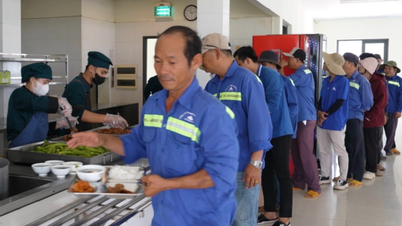
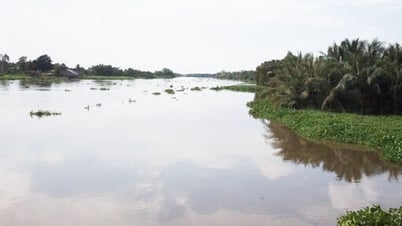







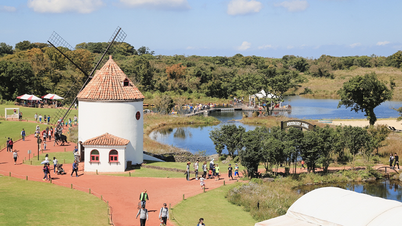


















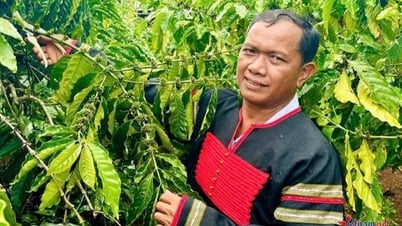

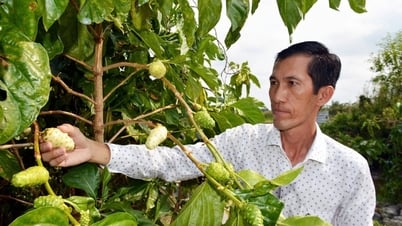








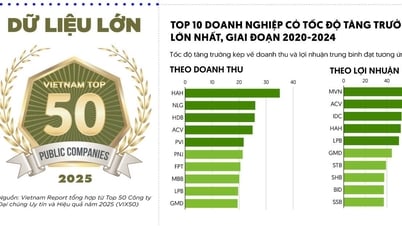



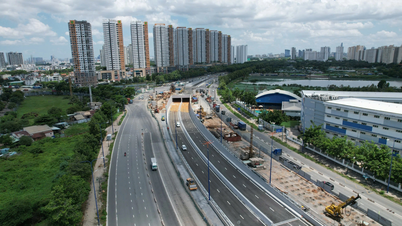

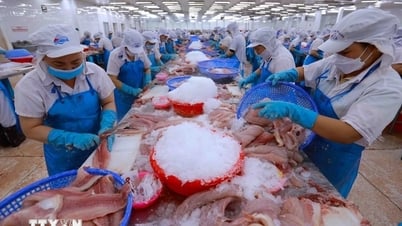




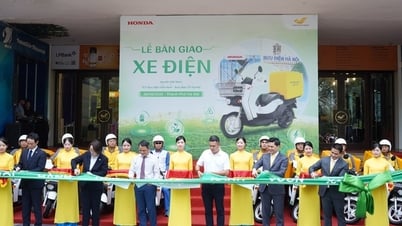






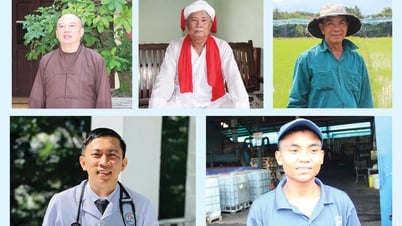




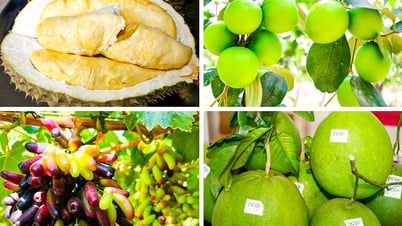

















Comment (0)